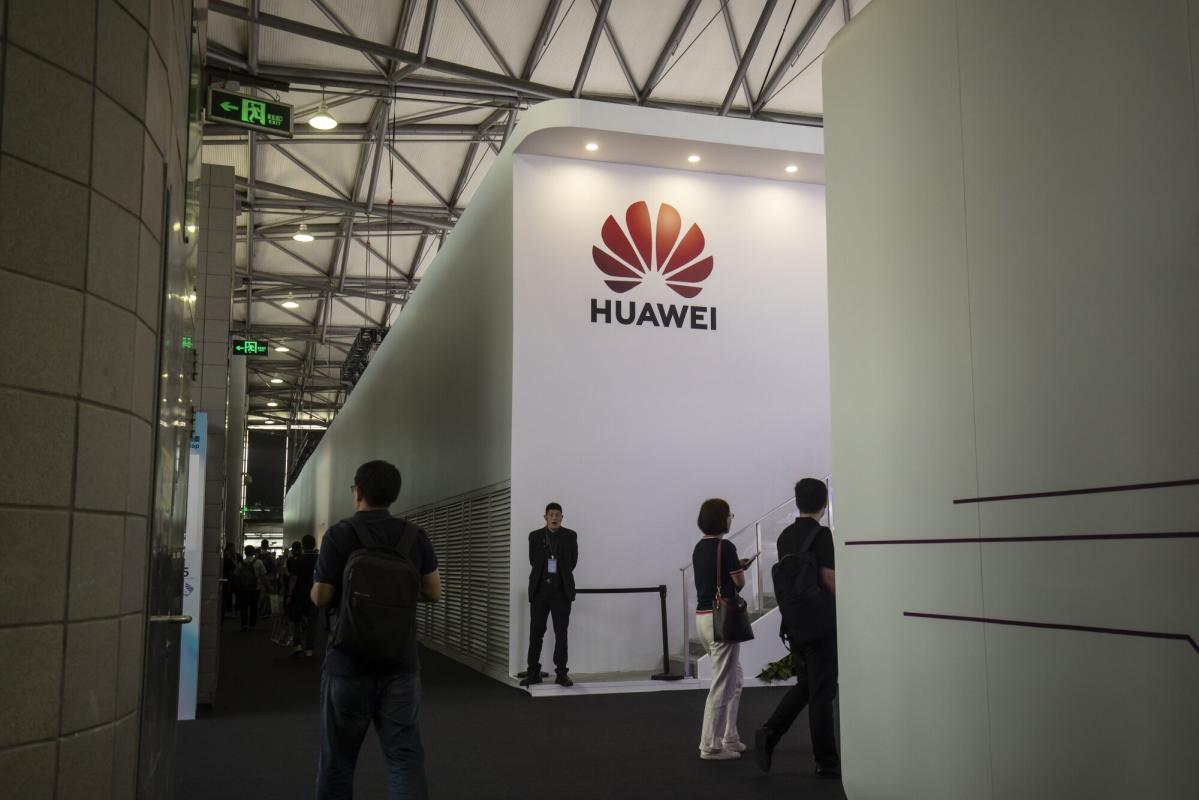
(Bloomberg) — Huawei Technologies Co. and its partner Semiconductor Manufacturing International Corp. relied on U.S. technology to produce an advanced chip in China last year, according to people with knowledge of the matter.
Most read on Bloomberg
Shanghai-based SMIC used equipment from California-based Applied Materials Inc. and Lam Research Corp. to make an advanced 7-nanometer chip for Huawei in 2023, the sources said, asking not to be named because the details are not public.
Unpublished information suggests that China still cannot fully replace some foreign components and equipment needed for cutting-edge products like semiconductors. The country has made technological self-sufficiency a national priority and Huawei’s efforts to advance chip design and manufacturing domestically have received support from Beijing.
Representatives for SMIC, Huawei and Lam did not respond to requests for comment. Applied Materials and the U.S. Commerce Department’s Office of Industry and Security, which is responsible for implementing export controls, declined to comment.
Hailed in China as a major breakthrough in local semiconductor manufacturing, the SMIC-made processor last year powered Huawei’s Mate 60 Pro and sparked a wave of patriotic smartphone purchases in the Asian country. The chip is still generations behind key components of global businesses, but ahead of where the United States hoped to stop China’s advance.
However, the machines used to make it still came from foreign sources, including technology from Dutch manufacturer ASML Holding NV as well as equipment from Lam and Applied Materials. Bloomberg News reported in October that SMIC used equipment from ASML for the chip breakthrough.
Major Chinese chip equipment suppliers, including Advanced Micro-Fabrication Equipment Inc. and Naura Technology Group Co., have tried to catch up with their U.S. peers, but their offerings are still not as comprehensive or sophisticated. China’s leading developer of lithography systems, Shanghai Micro Electronics Equipment Group Co., is still a few generations behind what industry leader ASML is capable of.
SMIC obtained the American machines before the United States banned such sales to China in October 2022, some of the people said. The two companies were among U.S. suppliers that began withdrawing staff from China after rules banning U.S. engineers from servicing certain machines in the Asian country took effect. ASML also asked U.S. employees to stop working with Chinese customers in response to U.S. restrictions, but Dutch and Japanese engineers are still able to service many machines in China, much to the dismay of their U.S. rivals.
Companies are now prohibited from selling advanced technologies of American origin to SMIC or to Huawei, based in Shenzhen. Both tech companies have been blacklisted by the United States for their alleged ties to the Chinese military, while Washington has tightened China’s overall access to chipmaking equipment and advanced semiconductors.
These trade restrictions have pushed Huawei and SMIC to seek solutions to build a domestic chip supply chain, and the Mate 60 Pro marked a surprising step forward in this effort.
Read more: China is secretly turning Huawei into the most powerful chip war weapon
After Huawei released the new phone, Washington launched an investigation into its processor and US Commerce Secretary Gina Raimondo promised to take the “strongest possible” measures to ensure national security. Meanwhile, Republican lawmakers have called on the Biden administration to completely cut off Huawei and SMIC’s access to U.S. technology.
Commerce Department officials said they had not seen evidence that SMIC could manufacture 7nm chips “at scale,” a point echoed by ASML CEO Peter Wennink.
If SMIC wants to advance its technology without ASML’s cutting-edge extreme ultraviolet lithography systems, the Chinese chipmaker will not be able to produce chips in a commercially significant volume due to technical challenges, Wennink told Bloomberg News at the end of January.
“The yield will kill you. You won’t get the number of chips you need to produce a high volume of chips,” he said. ASML has been unable to sell its EUV systems to China because the Dutch government has not issued a license allowing such exports.
The United States, meanwhile, is pressuring its allies, including the Netherlands, Germany, South Korea and Japan, to further tighten restrictions on China’s access to semiconductor technology. The effort is proving controversial and meeting resistance in some countries because it imposes limits on trade at a time when Chinese companies are investing in equipment and computing power to compete in the race for artificial intelligence.
Huawei could be China’s most promising candidate to develop AI chips to compete with the United States. The CEO of industry leader Nvidia Corp., Jensen Huang, in December called the Shenzhen company a “formidable” rival.
Read more: US urges allies to put more pressure on China on chip technology
–With the help of Gao Yuan, Vlad Savov and Edwin Chan.
Most read from Bloomberg Businessweek
©2024 Bloomberg LP


